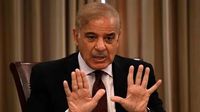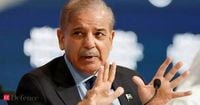In a dramatic escalation of tensions between India and Pakistan, India launched a series of air strikes on May 7, 2025, targeting nine locations across Pakistan and Pakistan-occupied Jammu and Kashmir (PoK). This operation, dubbed 'Operation Sindoor', was in retaliation for a recent terrorist attack in Pahalgam that resulted in the deaths of 26 people, mostly tourists. The strikes have drawn sharp reactions from both nations, with Pakistan's leadership condemning the actions as an "act of war" and vowing to respond decisively.
Indian forces executed the operation in the early hours, successfully hitting sites associated with the banned terrorist groups Jaish-e-Mohammed (JeM) and Lashkar-e-Taiba (LeT). Among the locations targeted were Bahawalpur, Muridke, and Kotli, where these groups have been known to plan and execute attacks against India. The Indian Ministry of Defence emphasized that the strikes were "focused, measured, and non-escalatory in nature," asserting that no civilian or military facilities were harmed during the operation.
Prime Minister Narendra Modi was reportedly monitoring the operation throughout the night, and sources indicated that precision munitions were utilized to ensure minimal collateral damage. The Defence Ministry released a statement shortly after the strikes, confirming that the actions were a direct response to the Pahalgam terror attack, which had been attributed to Pakistan-based terrorists. "We are living up to the commitment that those responsible for this attack will be held accountable," the statement read.
In the wake of the strikes, Pakistan's Prime Minister Shehbaz Sharif characterized the Indian military action as a "cowardly attack" and asserted that Pakistan has every right to respond forcefully. He stated, "The entire nation stands with the Pakistani armed forces, and the morale and spirit of the entire Pakistani nation are high. We will never allow the enemy to succeed in their nefarious goals."
Defence Minister Khawaja Asif echoed these sentiments, declaring that Pakistan would respond "with full force" and that the response would be both kinetic and diplomatic. He indicated that the Pakistani military is prepared to retaliate, emphasizing that the nation would not take the Indian strikes lightly. "We will pay off this debt in the manner such debt is paid," Asif told Geo News.
Reports from Pakistani military officials indicated that the strikes resulted in casualties, with three civilians killed and twelve injured. The Inter-Services Public Relations (ISPR) of Pakistan warned that India's actions would not go unanswered and that the temporary happiness India might feel from the strikes would soon be replaced by enduring grief.
In a broader geopolitical context, US Secretary of State Marco Rubio expressed concern over the escalating situation, stating that he was closely monitoring developments and hoping for a swift resolution. He reiterated the need for dialogue between the two nations to prevent further conflict.
The situation has also drawn international attention, with UN Secretary-General Antonio Guterres expressing concern over the potential for military confrontation between the nuclear-armed neighbors. He called for maximum restraint from both sides, emphasizing that the world cannot afford another conflict in South Asia.
As tensions rise, air traffic in northern India has been severely affected, with several airports, including those in Jammu, Srinagar, and Amritsar, reporting closures and delays. Airlines such as SpiceJet and IndiGo have advised passengers to check flight statuses due to the ongoing situation and airspace restrictions.
In the aftermath of the strikes, opposition leaders in India have rallied behind the military's actions, praising the precision of the operation. Leaders from various political parties have taken to social media to express their support, reinforcing a united front in the face of external threats. RJD leader Tejashwi Yadav stated, "There should be neither terror nor separatism! We are proud of our brave soldiers and the Indian Army."
Meanwhile, the BJP has taken a more aggressive stance, with party leader Kavinder Gupta claiming that "Pakistan is not going to survive for long" and suggesting that it could be divided into several parts. This rhetoric reflects the heightened emotions and nationalist sentiments that have surged in response to the recent violence.
As the situation continues to evolve, both India and Pakistan remain on high alert, with military forces mobilized along the Line of Control (LoC) to prepare for any potential escalation. Pakistan has reiterated its commitment to defending its sovereignty, while India maintains that its actions are justified measures of self-defense against terrorism.
In summary, the launch of 'Operation Sindoor' marks a significant moment in the ongoing conflict between India and Pakistan, with both sides bracing for possible repercussions. The international community watches closely, hoping for a resolution that can prevent further bloodshed and restore peace in the region.






